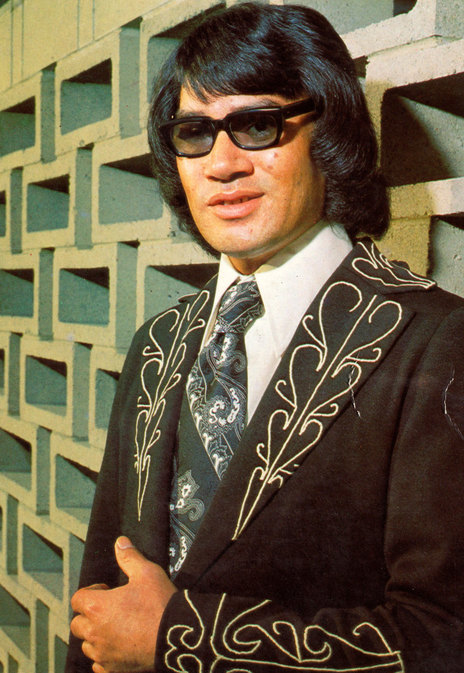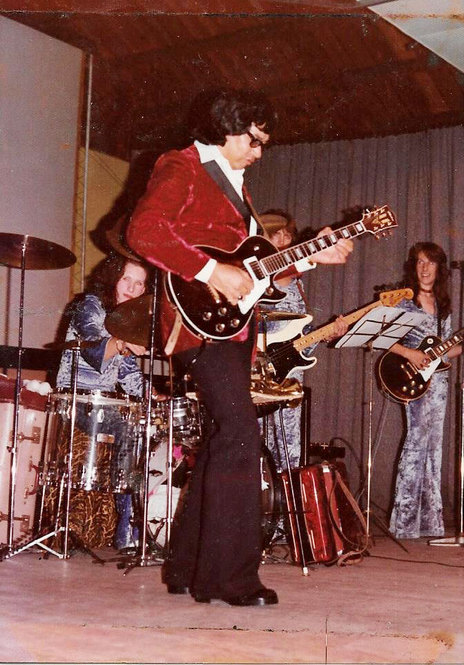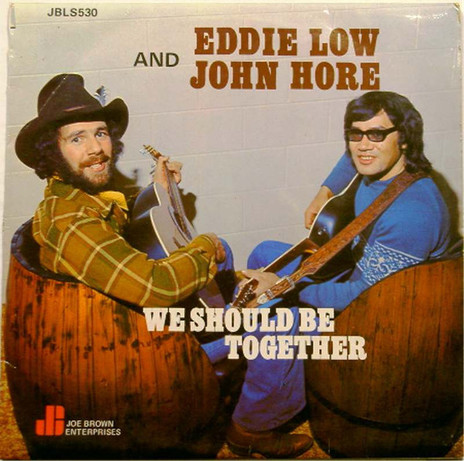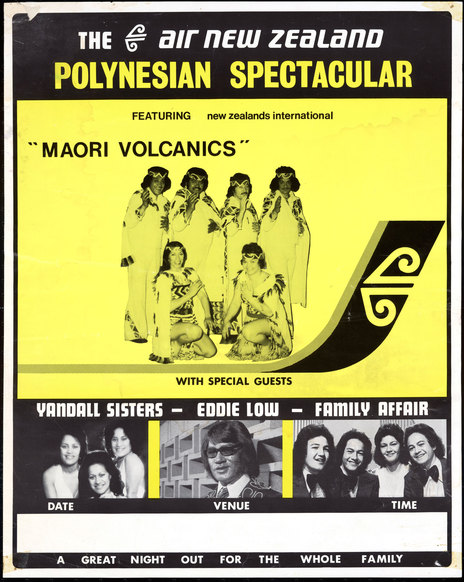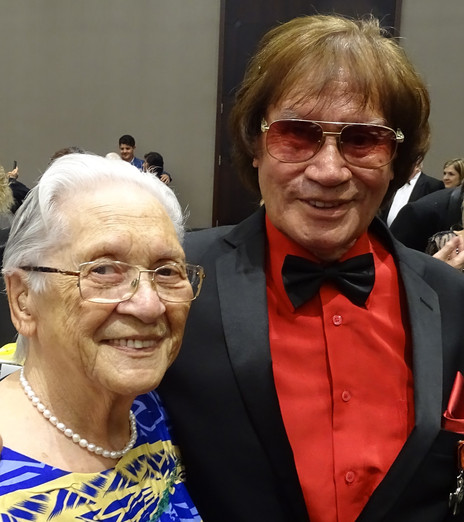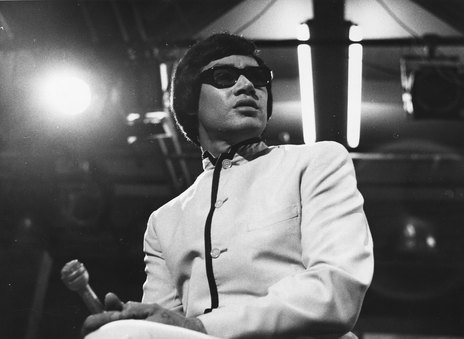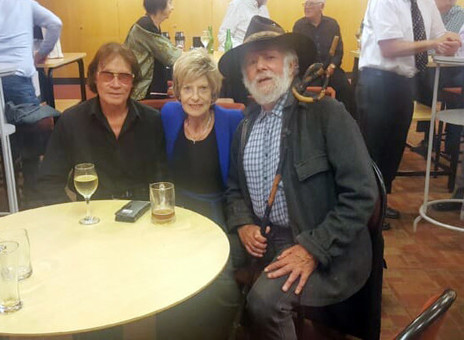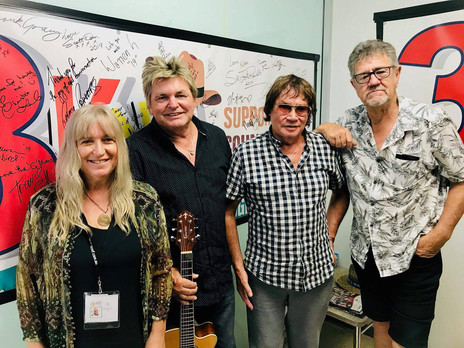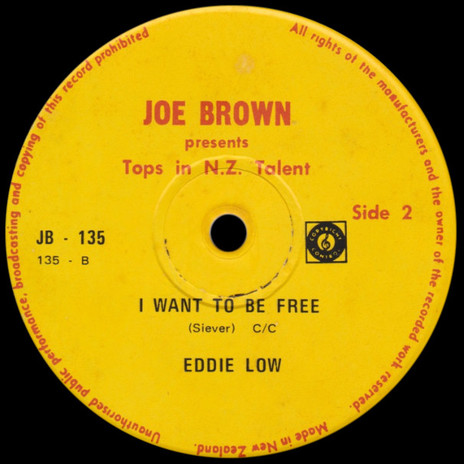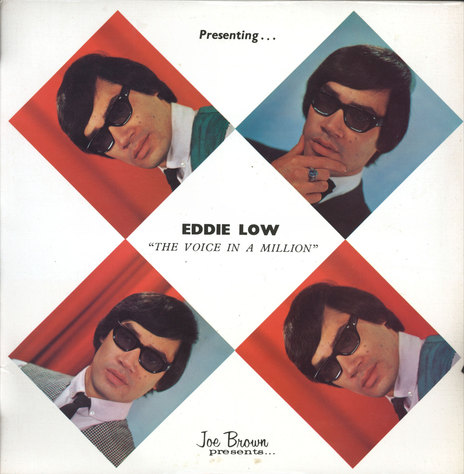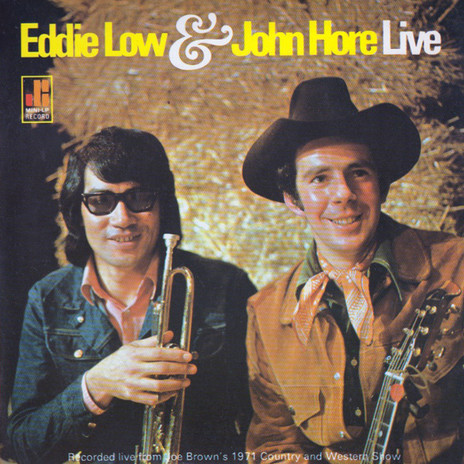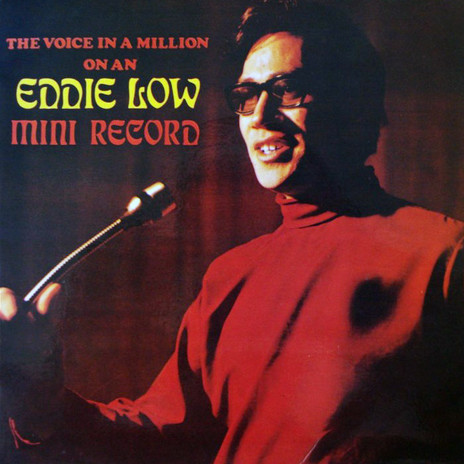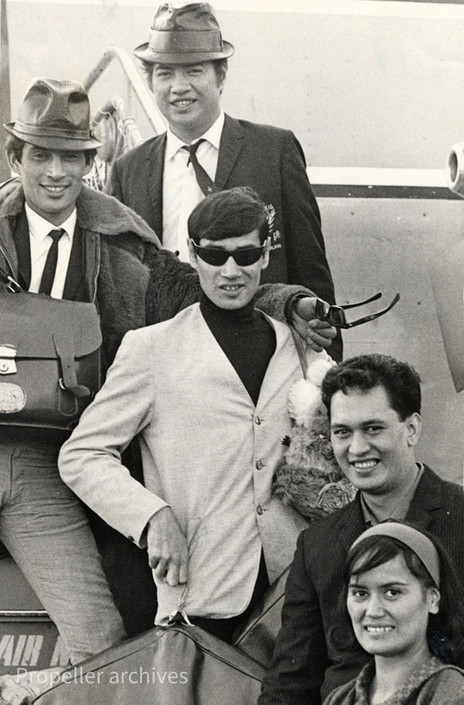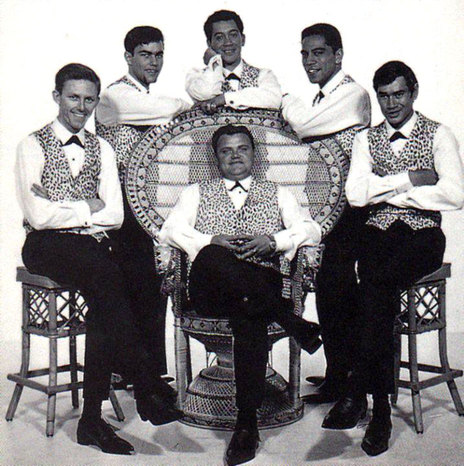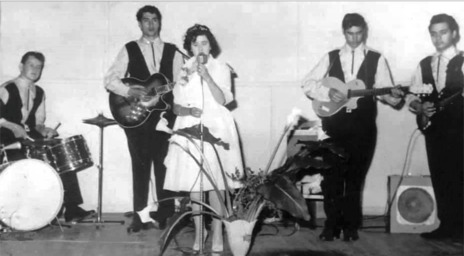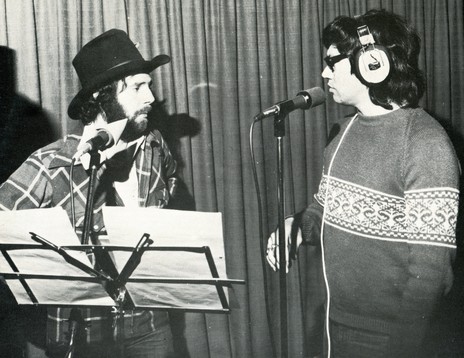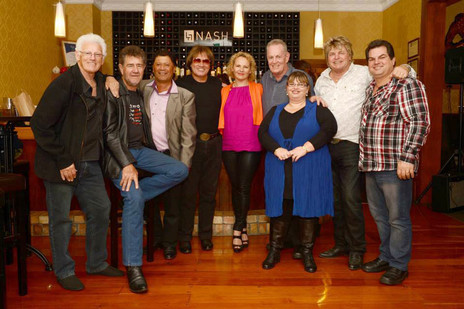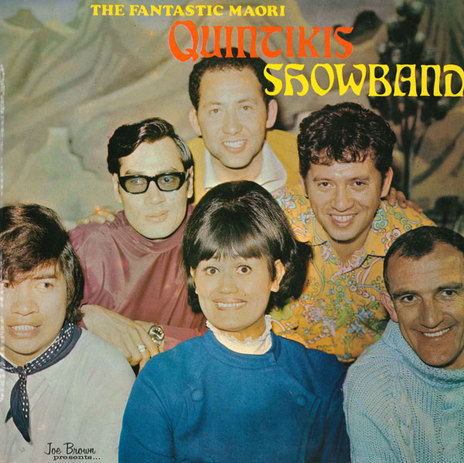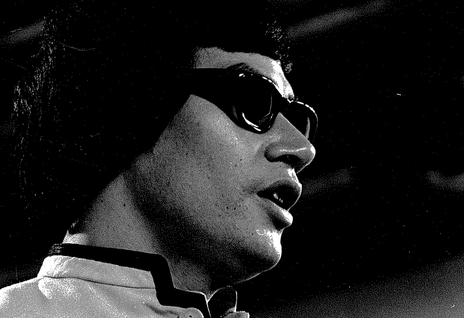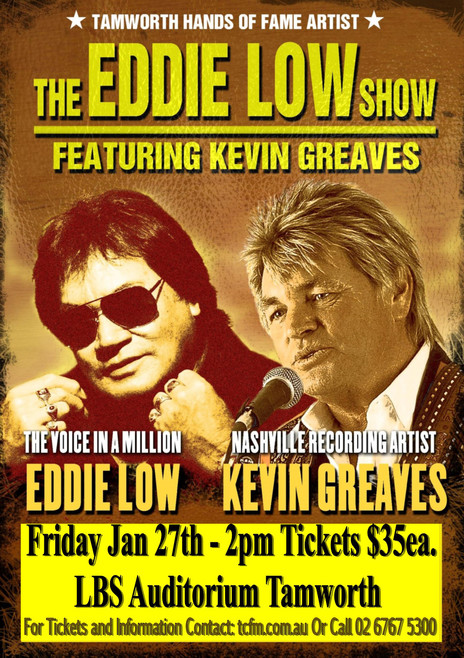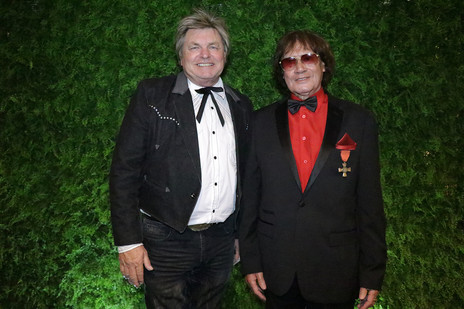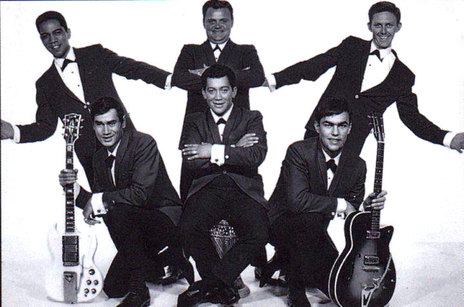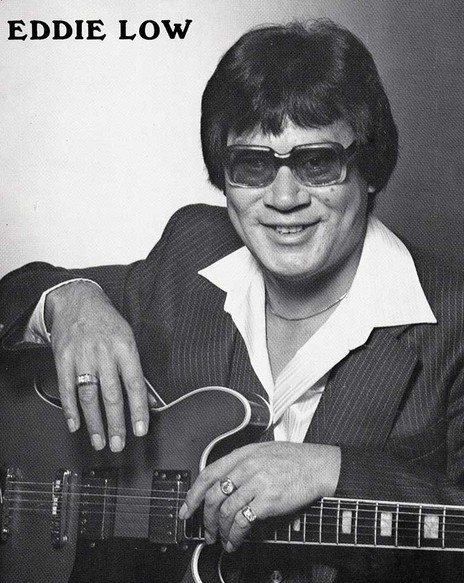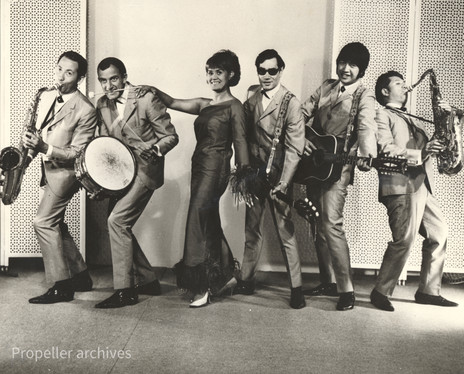From the age of five – at the suggestion of Rotorua musician Tai Paul – Low lived at the New Zealand Foundation for the Blind in Parnell, Auckland, going home for school holidays. At the Foundation he was taught menial assembly work. “I would take 12 Agee jars, lids and seals and put them in a box on a conveyor belt. I could see myself doing that for the rest of my life!”
Music was a key part of his upbringing; his uncle Joe Ratana had a hit with ‘Pania of the Reef’, and the Low family loved singing. Whenever Uncle Joe Mutu organised talent quests at the Rotorua Soundshell they all lined up to compete. (Years later, Low said he was still waiting for his prize money.)
When he was 12 Low underwent a series of operations which gained him limited sight in his right eye but doctors could not correct his left (he later joked that this won him a lot of money at the pool table). Over the years his eyesight diminished but he could still make out shapes, colours, and large print with a magnifying lens.
Although a school report saying said he had no musical ability, Low quickly became an accomplished instrumentalist as part of the Foundation Institute band, playing: guitar, piano, flute, string bass, violin, piano, accordion, and several brass instruments. When his voice matured it became a rich, lush baritone, and at the age of 13 he formed The Three Blind Mice, an instrumental trio.
Upon leaving school he joined The Chevronaires, who had a residency at Auckland's Picasso nightclub. The band included another aspiring singer/guitarist, John Rowles, Low’s brother David on guitar, and drummer Graham “Trix” Willoughby (father of singer Kim Willoughby, and later of The Brew).
Eddie Low and John Rowles hit it off and in 1964 decided to try their luck in Australia
Rowles and Low hit it off and in 1964 decided to try their luck in Australia, signing a six-month contract to sing Beatles tunes at the Riverside Inn in Melbourne. They were billed as “the New Zealand Beatles”, and wearing Beatles wigs was a requirement.
When their contract ended the duo moved to Sydney, where they joined other New Zealanders, including Willoughby, in The Dingdongers. They auditioned at the Sundowner Hotel for the Miller’s Brewery circuit, got the gig and renamed themselves The Sundowners.
The band, unrelated to Sonny Day’s band of the same name, had a residency at The Civic Hotel and for Sunshine Records recorded one single, ‘The End (Of A Rainbow)’, although it was credited on release to Rowles under his new stage name JA-AR.
Low became a member of The Truetones, then his instrumental skills led to his joining The Quin Tikis, who were one of the few showbands to maintain a live presence on both sides of the Tasman. They were regulars on Joe Brown’s annual touring Miss New Zealand extravaganza and also his Country and Western Stage Show. Low was a member of the band from 1965 to 1969.
In her AudioCulture profile of The Quin Tikis, Karen Stowers writes: “Eddie’s remarkable abilities extended beyond vocals; he played an impressive range of instruments, including piano, trumpet, flute, various brass instruments, guitar, string bass, violin, and piano accordion ... His joining the group would elevate them even further.”
Low can be seen performing with The Quin Tikis in the film Don’t Let It Get You, and as part of the band toured New Zealand, Australia, Singapore, and Kuala Lumpur. The Quin Tikis also entertained troops in Thailand and Vietnam.
It was Brown who spotted Low’s talent as a singer and fuelled his desire to be a country artist. He encouraged Low to leave The Quin Tikis and signed him to Joe Brown Records as a solo act.
Low’s first solo overseas gig was a week at the Isa Lei Hotel in Suva, Fiji, and Brown toured him throughout Australasia, Fiji, Tahiti, Papua New Guinea, Canada and the US. He performed on Nashville’s prestigious Grand Ole Opry three times.
Between 1970 and 1976 Low released 11 singles for Brown, with songs such as ‘Help Me Make It Through the Night’ and ‘Lonely Women Make Good Lovers’ receiving heavy airplay on country radio stations for many years. There were also two EPs in Brown’s unusual 7-inch 33rpm format and six albums, and a novelty single with his daughter Marie, ‘Daddy What If’.
Low paired with Brown’s biggest star John Hore for a 1971 EP called Eddie Low and John Hore Live and, the following year, the LP We Should Be Together (recorded in Auckland, with Peter Posa producing). In 1976 Brown released Eddie Low in USA and Canada, recorded live on tour in Nashville and Toronto.
While touring in Canada, Low wrote ‘Songs of Home’, which recalled the days when he and his friends gathered in someone’s home to socialise and have singalong sessions. The song lists well-known Māori place names and famous Māori songs. ‘Songs of Home’ has since been covered dozens of times by local and international artists.
In the mid-1970s Low moved to Australia and was soon sought-after for cabaret and club performances, but he returned to Christchurch often in the early 80s to appear on TVNZ’s hit series That’s Country, recorded in Christchurch.
After a five-year recording hiatus, Low signed to RCA in 1980, releasing 11 singles and five albums: Eddie Low Sings of Home, Easy Temptations, Blue Smoke, Country Greats, and Heart and Soul.
Low formed his own label, MAL Records, in 1986 to release his song ‘I Am Me’, which shared his feelings about being considered handicapped. The label was named after the initials of his first daughter, Maria Ann Low.
Among the many songs Low wrote were ‘Songs of Home’, ‘Sunday Daddy’, ‘Even Though You’re Leaving’. But, he told Michael Colonna in an interview, he didn’t sing many of them because he lacked faith in his own material.
In 2006 Low was made a Member of the NZ Order of Merit for services to music
In 2006 Low was made a Member of the New Zealand Order of Merit for services to music. Two years later, after the Highway Of Legends tour with Gray Bartlett, Brendan Dugan and John (Hore) Grenell, Low quit his Sydney base and moved to Christchurch. Why? Because, he quipped “my wife is from Christchurch and you can't get a decent feed of fish and chips over (in Australia).”
Low’s 2011 career overview compilation, Voice In A Million, was a platinum-selling release. The following year, he founded another record company – EdRab – and released an album named This Could Be the Last Time. The label’s name is a pairing of “Eddie” and “Rabbit”, a nickname for his wife Kathleen “Bunny” Low. Sadly, Bunny suffered a heart attack in February 2019 while on tour with Low in Australia, leaving him without his rock of support.
“I began to show the physical symptoms of grief and lost a lot of weight until my youngest daughter Tania, who is a cancer nurse, pushed me to see a doctor who found that I had colonic cancer. After a series of operations I began to feel better. The surgeon reckoned I had a tumour the size of a fist!”
Low opened the inaugural Rotorua Lakeside Festival in 2014 with Frankie Stevens and John Rowles; they called themselves The Bald, The Blind, and The Beautiful.
With Dennis Marsh, Gray Bartlett and Brendan Dugan, Low was also a member of the New Zealand Highwaymen. On 16 June 2023, he collapsed backstage five minutes before showtime at the Hokitika Regent Theatre. While medics attended to him the remaining members of the group opened the show. Tour manager Aly Cook later said, “Eddie was begging the ambulance officers to let him walk on stage for the first number before taking him to hospital but that didn’t happen. The three band members were totally professional and turned on an amazing performance while initially not knowing how Eddie was.”
He was transferred to Christchurch Hospital the next morning by the Flying Doctors service. That night the other three Highwaymen played the final of their 20-show national tour in Nelson. Nine days later he was released from hospital to attend his 80th birthday party.
Low continued to record and tour until his death, from cancer, on 20 September 2024. He had three children with his first wife Mira: Maria, Dayne, and Tania. Outside of music, his other interests included a great love of sport; he enjoyed playing cricket, vision-impaired golf, and pool.
